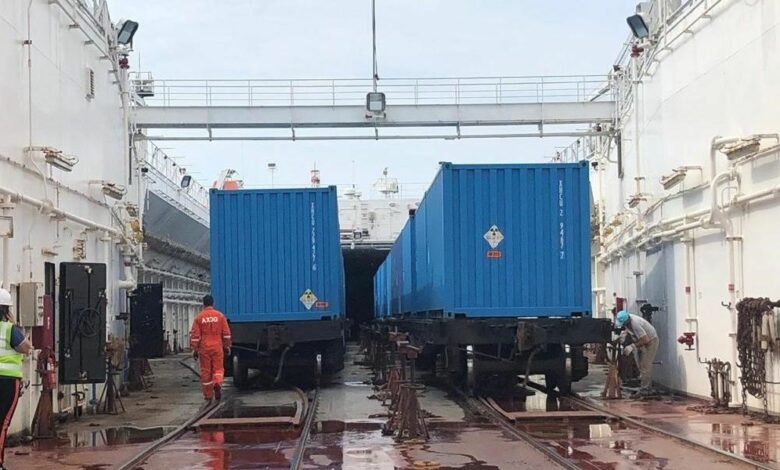Top uranium miner Kazatomprom looks to boost capacity on non-Russian shipping route

Kazatomprom, the world’s largest uranium miner, is looking to boost the capacity of its alternative shipping route to reduce the risk of the potential impact the growing list of sanctions on Russia could have on its exports.
The Kazakh company, which ships most of its products through Russian territory, said in its latest trading update that its third-quarter volumes went via St. Petersburg port “without any disruptions or logistical or insurance-related issues.”
However, it noted that the Trans-Caspian International Transport Route (TITR), which the company has used as an alternative route since 2018, could help mitigate the risk of the primary route becoming unavailable for any reason.
Kazatomprom has an approved annual quota allowing it to ship a total of up to 3,500 tonnes of uranium from its mines via the TITR, and said it has been working on increasing the limit and assisting its joint venture partners “if they would prefer not to receive their share of material via the established route that passes through the Port of St. Petersburg.”
The TITR route goes from Kazakhstan via the Caspian Sea to Azerbaijan and then Georgia, from where products can be shipped through Black Sea ports. Kazatomprom said the route requires the use of chartered vessels rather than commercial shipping companies and to maximise cost efficiency, the material has to be consolidated at the Georgian port of Poti.
Kazatomprom noted it had a shipment to Western markets in-progress on the TITR, which was awaiting consolidation in the Georgian port but warned of delay risks for shipments where the nuclear material is owned by its joint venture partners as “transit country authorities ask for certain shipment details and associated documents.” It added that its sales and revenue guidance for 2022 could be impacted if future shipments on the TITR are delayed.

